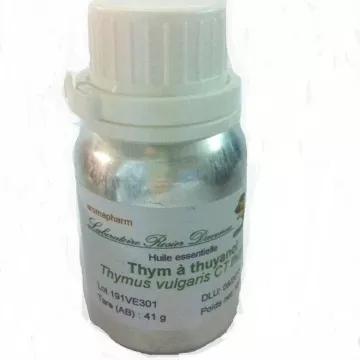Soin-et-nature respects your privacy Our site uses cookies to ensure that it functions properly and to optimise technical performance. For more information information and/or to change your preferences, click on the "Settings" button.

Antiseptics are indispensable tools in the healthcare sector for the prevention of infections. A thorough understanding of how they work, how to apply them correctly and what precautions to take is essential for their safe and effective use. By remaining informed and attentive, we can maximize the benefits of antiseptics while minimizing the risks to health.
What is an antiseptic?
An antiseptic is a chemical substance designed to destroy or inhibit the growth of micro-organisms on living tissue (skin and mucous membranes). Unlike antibiotics, which target infections inside the body, antiseptics are applied externally to prevent infections in wounds, cuts and burns.
How do antiseptics work?
Antiseptics work by altering the structure or metabolic functions of micro-organisms. This action can lead to the destruction of bacteria, viruses and fungi, or simply inhibit their growth and reproduction, without necessarily killing them. Mechanisms of action vary according to the type of antiseptic used, with some disrupting cell membranes, while others interfere with microbes' DNA or essential proteins.
What are the most common types of antiseptic?
Several classes of antiseptics are widely used for their effectiveness against a broad spectrum of micro-organisms:
When to use antiseptics
Antiseptics should be used to clean minor wounds, cuts and scrapes, or before medical procedures involving a break in the skin, such as injections and minor surgery. They are essential for preventing infection in open wounds.
How to choose the right antiseptic?
The choice of antiseptic depends on a number of factors, such as:
It is crucial to follow the recommendations of health professionals to choose the most appropriate antiseptic for each situation.
How to apply an antiseptic correctly
Correct application of an antiseptic is essential to maximize its effectiveness while minimizing risks. Here are the recommended steps:
Are there any risks associated with using antiseptics?
Can the same antiseptics be used on adults and children?
Antiseptics can be used on both adults and children, but with caution. For children, especially infants and toddlers, we recommend choosing mild antiseptics, such as low-concentration chlorhexidine-based ones, as their skin is more sensitive. It's crucial to follow the doses and application methods recommended by healthcare professionals, and to read the product instructions carefully to check that it's suitable for children.
Can antiseptics be used on animals?
Some antiseptics are safe for use on animals, but it's important to consult a veterinarian before applying them. Animals have different skins to humans and may react differently to certain chemicals. There are antiseptics specifically designed for animals, and their use is recommended to avoid adverse reactions.
Can antiseptics expire?
Yes, like all medical products, antiseptics have an expiry date. After this date, their efficacy may be reduced, and they may not provide the expected level of protection against infection. It is important to regularly check the expiry dates of antiseptics available at home or in first-aid kits, and to replace them if necessary.
Can an antiseptic be used to treat an existing infection?
Antiseptics are primarily intended for infection prevention, not treatment. If an infection has already developed, it's crucial to consult a healthcare professional for proper diagnosis and treatment. In some cases, an antiseptic can be used to clean the infected area before applying antibiotic treatment, but this must be done under medical supervision.
Is it safe to use antiseptics on open wounds?
Yes, it's generally safe to use antiseptics on open wounds, but it's important to choose the right product. For open wounds, mild antiseptics, such as those based on chlorhexidine or low-concentration povidone-iodine, are preferable to avoid irritation. It's also important to apply the antiseptic carefully to avoid aggravating the wound. When in doubt, it's always best to consult a healthcare professional for advice on treating open wounds.